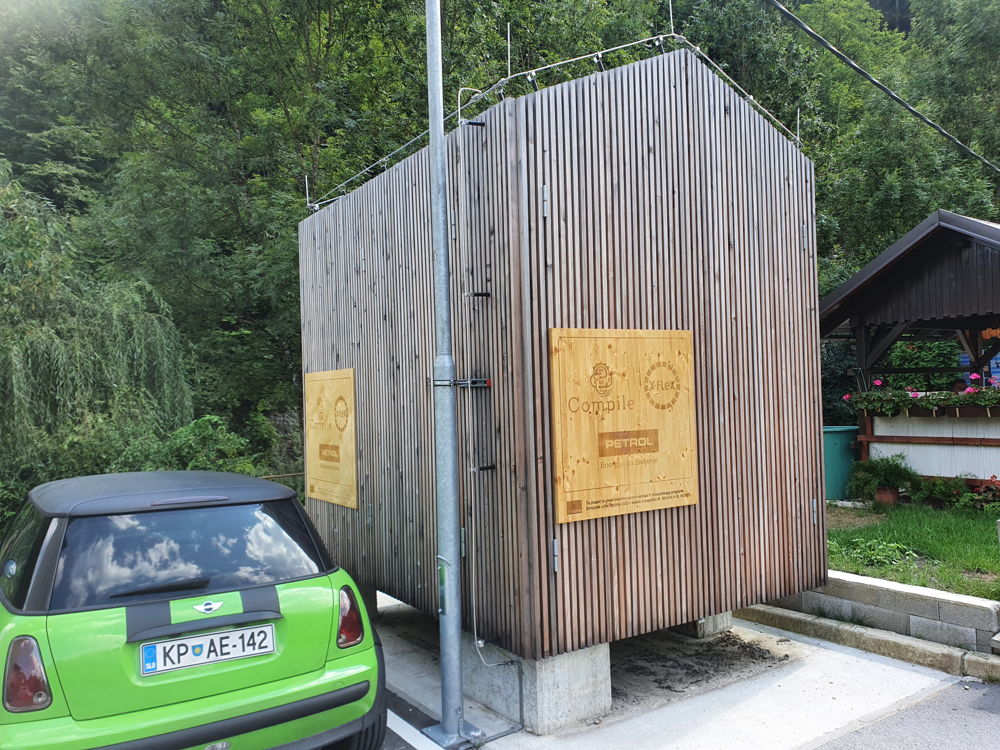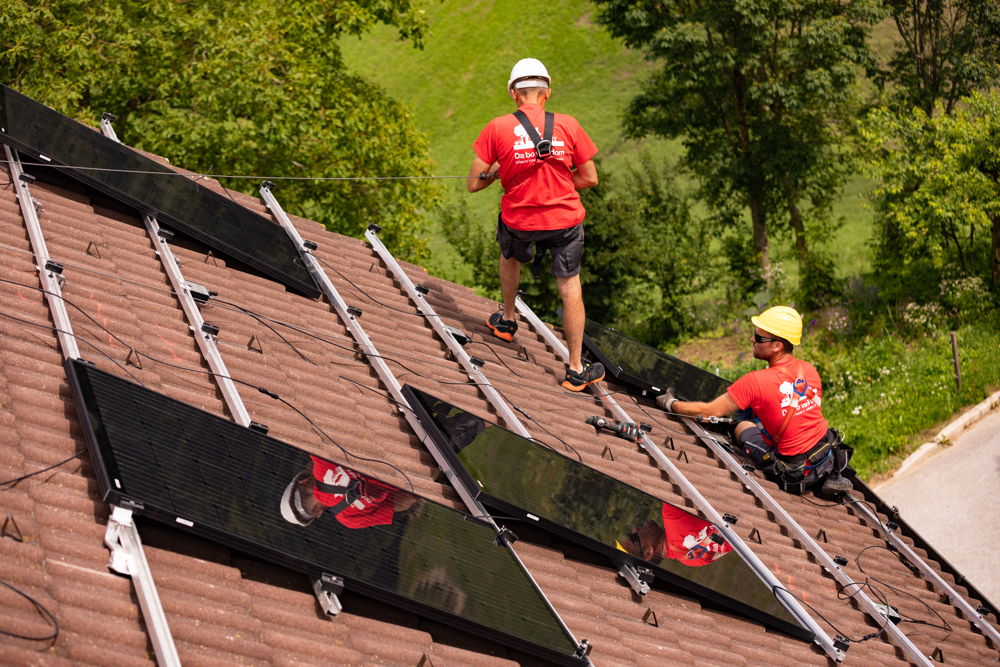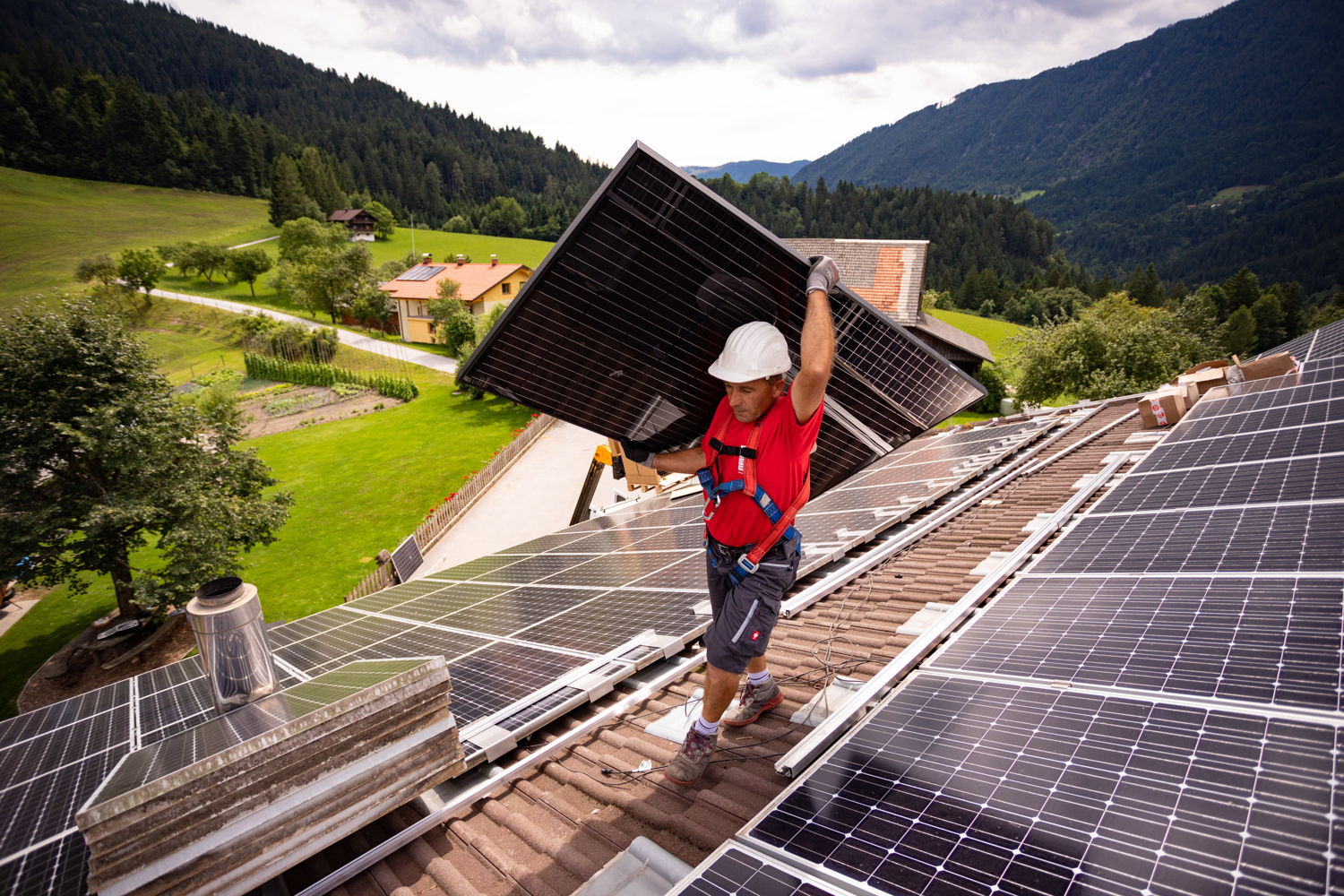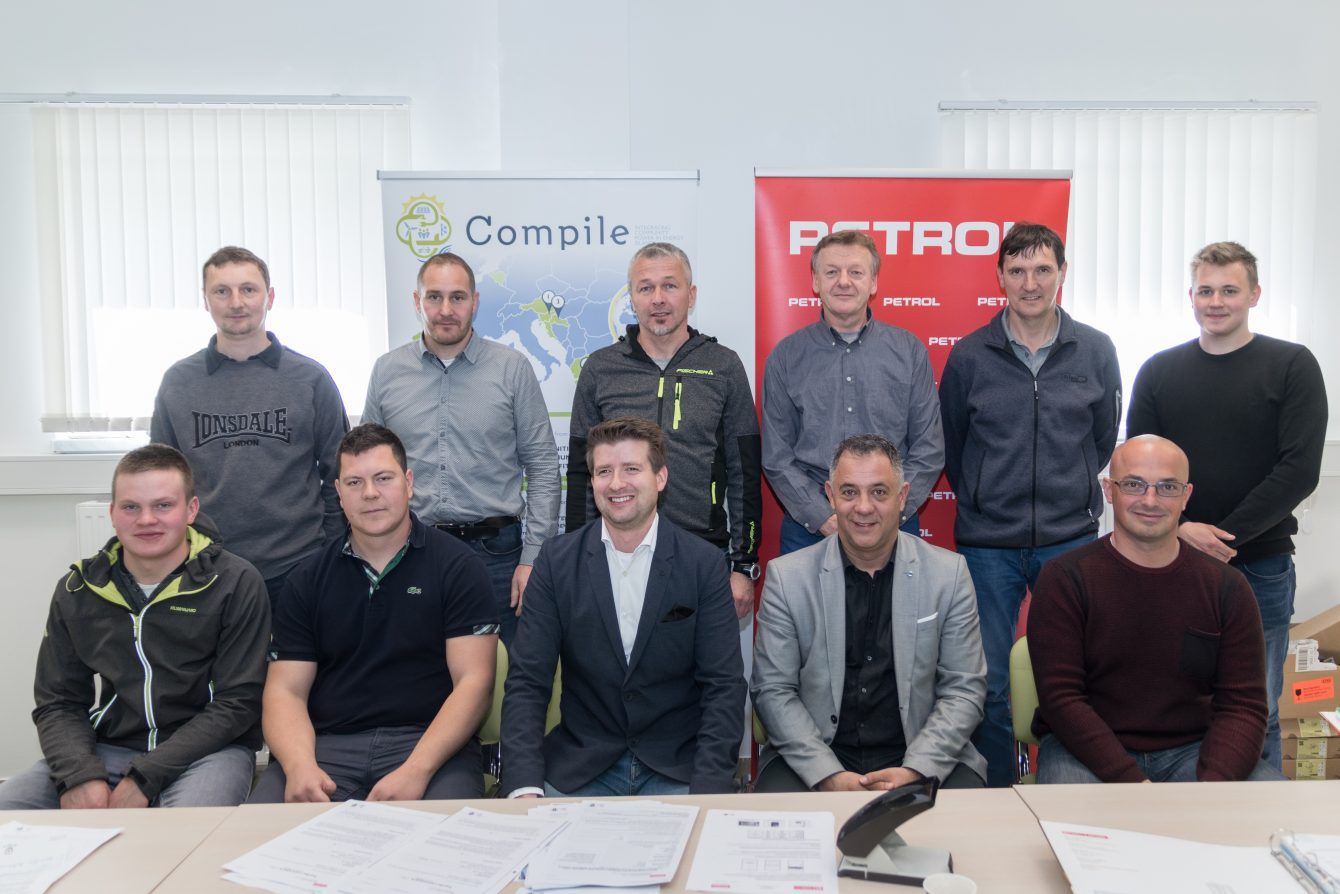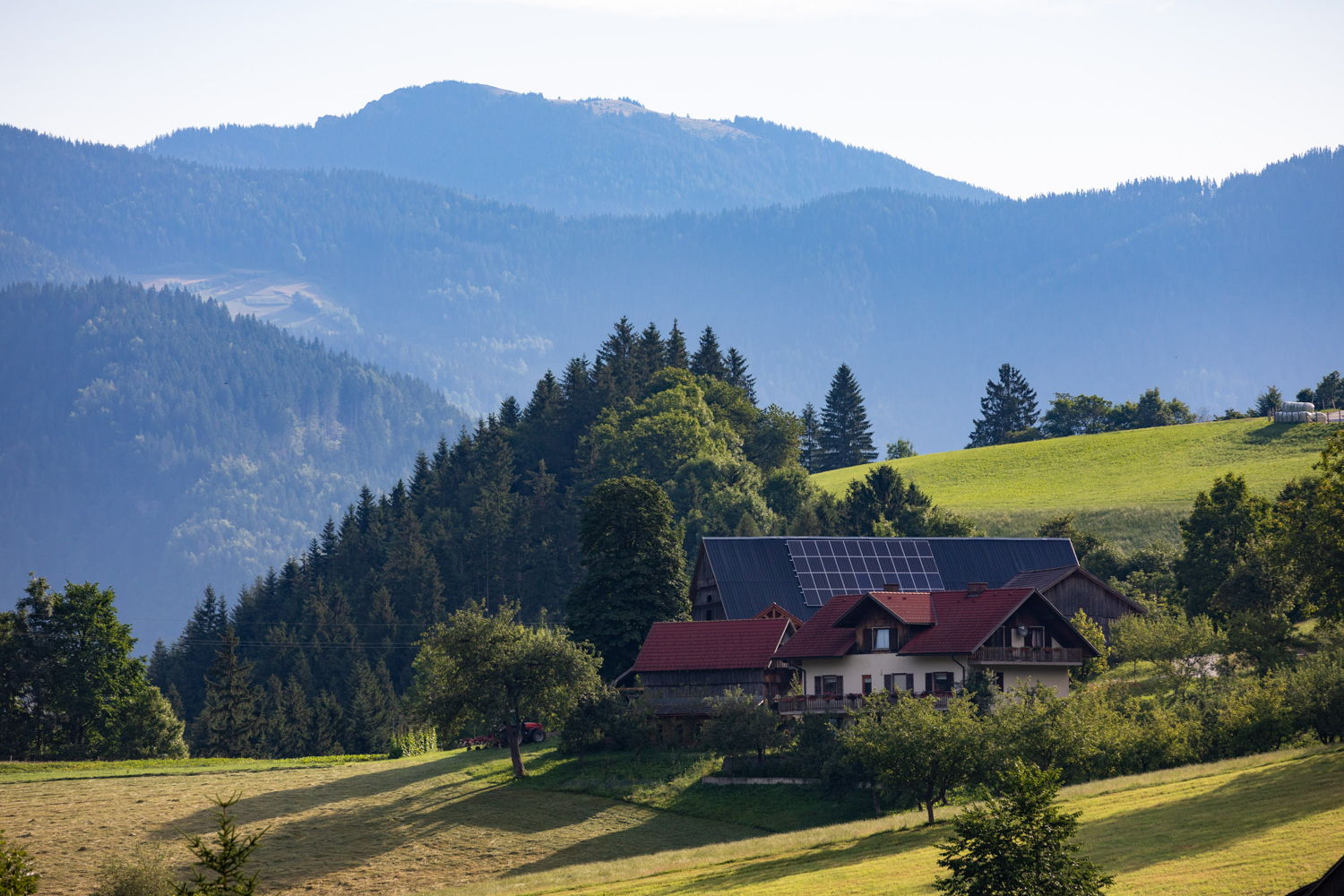Slovenia’s first self-sufficient energy community breaks new ground for rural areas worldwide in renewable energy integration
COMPILE, project that proves communities in 'energy islands' can create self-sufficient local energy systems, announced as a finalist in the upcoming EU Sustainable Energy Awards.
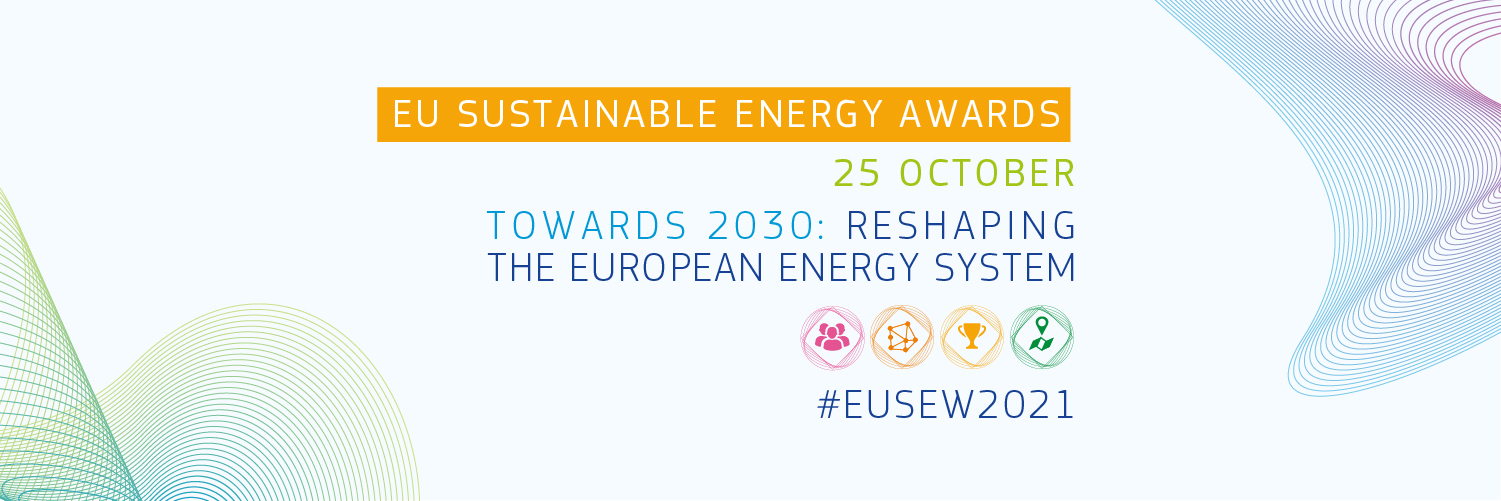
A rural community in Luče in the North of Slovenia is the first in the country to become fully independent in its energy supply. Since April 2020, the municipality of 400 people is able to cover its electricity needs from renewable energy sources alone. Luče is an award-winning pilot site of the EU-funded project COMPILE that successfully installed ten times the amount of PV (photovoltaics) normally allowed by the local network operator, despite a weak connection to the grid. To achieve this, the community banded together to raise funds and came up with technical solutions to bypass grid limitations when installing renewables, including the use of household and community batteries.
While citizens of Luče can feel proud to secure their energy supply in a sustainable manner, the true winners are any and all rural citizens worldwide whose communities suffer from weak grid connections. The learnings from this experience and those of other pilot sites taking part in the project have led to the creation of toolsets that have the potential to empower other communities to take on their own local energy systems with large or even entire shares of renewable energy. The six toolsets, all of which were fully deployed in Luče, cover both creation and running of energy communities, as well as technical solutions for the operation and management of local energy systems. One such toolset is GridRule, which enables actors in an energy community to operate, control and manage microgrids while improving their flexibility, stability and security.
“We demonstrate the value of establishing energy communities around Europe, using social approaches and cooperation models among citizens combined with technological solutions. As a result, we manage to successfully integrate renewable energy sources in previously unusable locations,” says Tomi Medved, senior researcher at the University of Ljubljana’s Laboratory of Energy Policy and deputy coordinator of the COMPILE project.
With a budget of EUR 6,42 million, partially funded by the European Union’s Horizon 2020 programme, the COMPILE project shows how energy communities under varying regulatory schemes, leveraging different financing mechanisms and using different technologies can work within grid constraints and find optimisations. The crucial common aspect is cooperation within the community to fully control decentralised local energy systems. This leads to a secure, sustainable and decarbonised energy supply with all actors along the energy value chain engaged.
“We are helping to create energy communities by implementing workshops, providing guidelines and toolkits and through testing and dissemination of mechanisms that help the community invest in equipment such as PV or batteries,” says Chloé Fournely, researcher at the University of Ljubljana’s Laboratory of Energy Policy.
The project, which began in November 2018, is led by the University of Ljubljana and counts 11 other partners that form the consortium. Over a four-year period, COMPILE aims to show the opportunities of remote areas or areas weakly connected to the grid, the so-called energy islands, for decarbonisation of energy supply, community building and creating environmental and socioeconomic benefits. Just how this can be done is being demonstrated not only in Luče but in four additional pilot sites in Portugal, Spain, Greece and Croatia. Initiatives such as this one are bringing the EU closer to the 2030 targets.
Engaging European citizens in the energy transition
COMPILE is one of three finalists shortlisted for the EU Sustainable Energy Awards 2021 in the Engagement category. The award recognises activities with high social acceptance potential, that inspire and motivate citizens to change their energy usage habits. The two other contenders in the Engagement category include the projects EnergyNeighbourhoods and TripleA-reno.
EnergyNeigbourhoods is a programme in Hungary that empowers individuals and communities to take action in response to climate change by making energy-saving behavioral changes in a collaborative way. TripleAReno uses a performance evidence-based approach to make home renovations and resulting energy savings more attractive, acceptable and affordable for EU citizens.
EU Sustainable Energy Awards recognise champions of 2030 climate and energy targets
Twelve outstanding individuals and projects are highlighted at the EU Sustainable Energy Week (EUSEW) 2021 for their innovation in energy efficiency and renewables. Finalists were chosen from a list of the year’s most successful projects for clean, secure and efficient energy. The awards have four categories - Engagement, Innovation, Woman in Energy and Young Energy Trailblazer – as well as the Citizen’s Award, which will be received by one of the projects in the first two categories. Prizes will be awarded by an expert jury (for Engagement and Innovation), and by citizens via a public vote, which is now open until 22 October. The five winners will be announced on Monday 25 October during EUSEW 2021.
EUSEW 2021
EUSEW 2021 runs from 25 to 29 October 2021, under the theme ‘Towards 2030: Reshaping the European Energy System’. Taking place ahead of the decisive COP 26, the event brings together energy policy experts, industry leaders, academia and civil society representatives to discuss how forward-looking policies for decarbonisation, energy efficiency, climate mitigation, and many others comprising the European Green Deal, can help rebuild a better and more resilient society and economy.
EUSEW 2021 is held as an online event once again, with more opportunities than ever to connect, engage, network and reflect on the biggest issues in clean energy in Europe and beyond.
Registrations for participants and for media are now open.
For interview requests with the EUSEW 2021 Award finalists or additional media information, please contact media@eusew.eu
